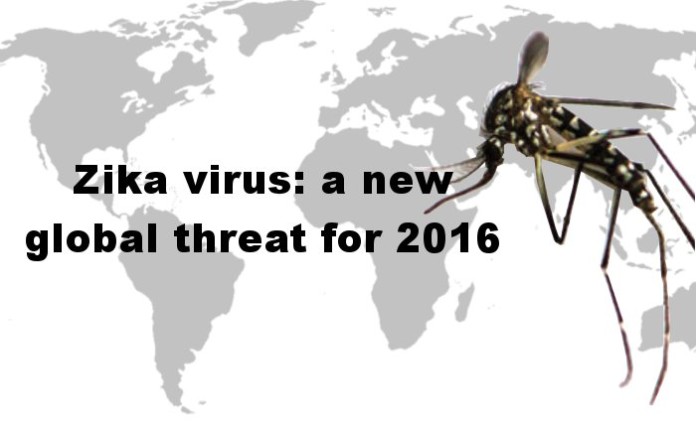Concerns about the threat posed to global health security by Zika virus are escalating, with new outbreaks reported in Central and South America.
Locally transmitted (autochthonous) cases of Zika have now been detected in Colombia, El Salvador, Guatemala, Mexico, Paraguay, Puerto Rico, and Venezuela. The first five autochthonous cases detected in Suriname are reported in Correspondence online, with complete coding of the Zika virus sequence for one patient, and envelope protein coding sequences for three others. Phylogenetic analyses show that the Suriname strains belong to the Asian genotype, and are closely related to the strain that was circulating in French Polynesia in 2013.
Last month, the Ministry of Health in Brazil reported a twentyfold annual increase in cases of newborn babies with microcephaly in the northeastern region of the country. The ocular findings (funduscopic changes in the macular region) in three of these babies with microcephaly are described in a second Correspondence published online. A causal link between Zika virus in the mother and microcephaly in the newborn baby has yet to be firmly established, but is a worrying possibility. Other congenital neurological anomalies and an increased frequency of Guillain-Barré syndrome linked to Zika virus have also been reported.
Zika virus is an emerging mosquito-borne arbovirus that was first isolated from a rhesus monkey in Uganda in 1947, and caused sporadic human infections in some African and Asian countries, with usually mild symptoms of fever, rash, and arthralgia. In 2007, it caused an epidemic on Yap Island in the Federated States of Micronesia, then spread to many countries in Oceania, before arriving in the Americas in 2014–15, probably via Easter Island.
With an estimated 440 000–1 300 000 cases currently in Brazil alone, Zika virus could be following in the footsteps of dengue and chikungunya, which are also transmitted by the Aedes aegypti mosquito. Given that an outbreak anywhere is potentially a threat everywhere, now is the time to step up all efforts to prevent, detect, and respond to Zika virus.
Source: The Lancet






























